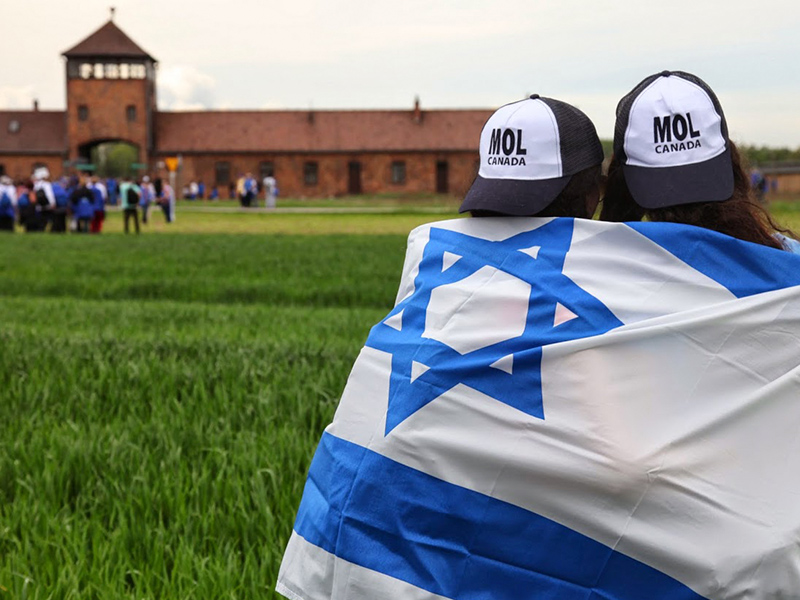It seems that most of the Israelis who line up at the Polish embassy in Tel Aviv to get Polish passports because their forbears were born in Poland are likely to use them to travel to – perhaps settle in – Germany.
Despite the warm diplomatic relations between Israel and Poland and notwithstanding Poland’s current efforts to preserve all of its Jewish history, most Israelis, like Jews in the Diaspora, shun Poland but flock to Germany where many now live. They’ve chosen to forget that the Final Solution was a German scheme to eradicate the Jewish People and that Auschwitz may have been located in Poland, but was a German death camp, as were Treblinka, Majdanek and others.
READ: MUSEUM HONOURS POLES WHO SAVED JEWS DURING THE HOLOCAUST
In an effort to alert the community to the long and distinguished history of the Jews in Poland, which was often a haven for Jews and Judaism, I had the privilege to be one of the founders of the Polish-Jewish Heritage Foundation of Canada. Thanks to the valiant efforts of Peter Jassem, its current chair, the foundation still exists, but our lofty plans to celebrate Polish Jewry, not only to mourn its tragic end, haven’t materialized. Rather than keeping away from Poles, we tried to build bridges between them and Jews.
Disdain for Poles and Poland may also be reflected in the March of the Living that takes Jewish youngsters from many countries to the death camps on Holocaust Memorial Day, and then on to Israel for Independence Day. A similar project takes Israeli students to Holocaust sites in Poland before graduation from high school.
My Israeli grandchildren didn’t go on the March of the Living and refused to participate in their school trips to Poland. They asked my wife and me to take them there. We showed them the obvious sites, but also the places where we were born and where we lived as children. When we’d see groups of Israeli girls and boys wrapped in Israeli flags wandering about the death camps, we understood why our grandchildren wanted to be spared this exercise in chauvinism.
Some Israeli educators have now come to the same conclusion. Recently, Zeev Dagani, the headmaster of the Herzliyah High School in Tel Aviv, the oldest and arguably the most influential school in the country, withdrew from the project stating, according to a report in Time magazine, “that it exacerbates nationalistic sentiments in youths, months before the students embark on compulsory service in the Israeli military.”
One of his supporters is Anat Livneh, director of the Ghetto Fighters House, the Holocaust museum in the kibbutz of the same name. She explained her reasons in a lengthy article last April in Ha’aretz in which she also distanced herself from the March of the Living. Livneh also announced plans to change the annual memorial ceremony in the kibbutz to commemorate the heroes and the victims with less nationalist rhetoric and more substantive content.
READ: FACING THE PAST IS MORE IMPORTANT THAN EVER IN POLAND
Charles Krauthammer, the celebrated Washington Post columnist, is a staunch believer in the imperative to remember the victims of the Holocaust. Nevertheless, he questions the way this is being done at present. He told readers that his “concern is that Holocaust memory is emerging as the dominant feature of Jewishness in America.”
Krauthammer wrote: “I worry that a people with a 3,000-year history of creative genius, enriched by intimate relations with every culture from Paris to Patagonia, should be placing such weight on martyrdom.” And he added: “It would be a tragedy for American Jews to make the Holocaust the principal legacy bequeathed to their children.”
Jews in Canada may share his conclusion: “Memory is sacred, but victimhood cannot be the foundation stone of Jewish identity.”
When this is done by ignoring most of Polish-Jewish history and indiscriminately loathing another people as a way of manifesting commitment to Israel, there’s cause for alarm. Jewish education must rest on accuracy and balance, not emotional catharsis.
